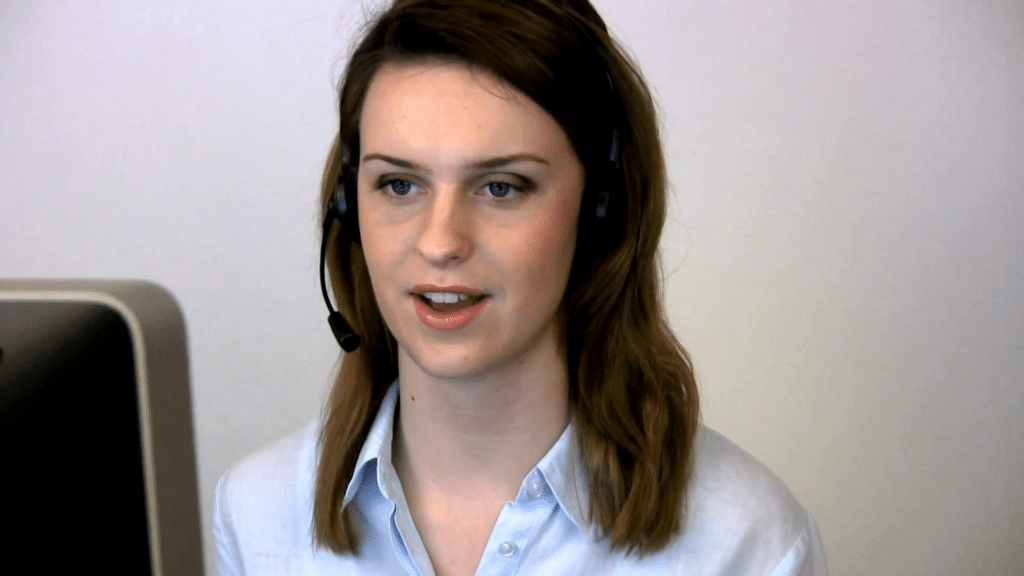Healthcare providers like yours depend on efficient medical answering services. But have you seen instances where your nonclinical operators find it difficult to manage high call volumes, or to document all patient needs accurately for your nurses to triage?
Incomplete symptom data and excessive wait times for nurse callbacks can affect patient trust, quality of care, and health outcomes. When not addressed, these issues can lead to patient churn, lost revenue, and practice liability.
Let’s explore issues that could be affecting your nonclinical operators, and how TriageLogic’s MedMessage Assist™ tool can help overcome them.
Challenges With Traditional Medical Answering Services
1. Delayed Response Times and Patient Frustration
Patients today expect quick responses from their providers, including after normal office hours. Practices that don’t have a dedicated phone line are more likely to see higher rates of patient dissatisfaction. Additionally, patients who can’t reach their providers in a timely manner may delay important medical decisions, leading to worse health outcomes and decreased provider trust.
For instance, a patient needing immediate attention for a prescription refill or urgent health question may abandon a call if they aren’t able to reach a live representative or place a request. At worst, this has the potential for life-threatening complications, especially if the patient has a chronic illness.
While patients should always dial 911 in an emergency, there are instances where they may not realize that their symptoms are severe enough to warrant it and will need the appropriate guidance from your practice to understand them.
2. Patient Churn and Revenue Loss
When patients feel their needs are not being met, they are more likely to seek care from another provider. Missed or mishandled calls directly impact patient retention, and, over time, the revenue losses associated with patient churn can be substantial.
3. Impact on Clinical Staff Workload
An ineffective answering service can add strain to your triage nurses and clinical staff, who may need to compensate for delayed or mishandled patient messages. This can further delay in-person care, exacerbate physician burnout, and contribute to the already high healthcare shortage looming over the industry.
When clinical staff are forced to clarify the needs of routine patient calls and requests, it also limits their capacity to focus on patient care.
How TriageLogic’s MedMessage Assist Addresses These Challenges
TriageLogic’s MedMessage Assist (MMA) is designed to overcome these issues and promote robust medical answering services by focusing on accuracy, speed, and seamless communication — starting with how your operators interact with patients.
1. Complete and Accurate Requests
MMA uses advanced algorithms and keyword analysis to identify when recorded patient symptoms need further clarification. It then prompts the operator to ask the patient additional questions while they’re still on the phone, ensuring complete and accurate medical intake before routing to a triage nurse.
MMA has already demonstrated over 99% accuracy on all intake requests — far higher than any amount of training has been able to accomplish!
In turn, this allows your triage nurses to properly evaluate the severity of patients’ symptoms and prioritize their requests.
2. Reduced Wait Times and Workload
By itself, MMA adds minimal time to a patient call — on average, 27 seconds. As operators get the hang of using this software, we anticipate that many of their calls will be addressed faster than usual. In turn, this will alleviate the burden of high call volumes on those operators and the triage nurses that receive their information.
It’s important to note that, similar to live calls, MedMessage Assist is a self-teaching module that trains operators on how to use its software without the need for an instructor or manager.
3. Enhanced Continuity of Care
When integrated with your in-house software, MMA can offer stronger data interoperability — from your operators, to your nurses, to your providers — so that everyone has access to the appropriate patient information for continuity of care.
This allows providers to address patient needs faster and accurately, leading to greater patient trust and loyalty, and better health outcomes.
4. Options for After-Hours Care
We want to be clear that MMA is not a replacement for your nonclinical operators, but a tool that can make their jobs easier. This means that while it can be extremely useful for your daily call interactions, you still need some form of after-hours call service if you want to address patient needs during that time.
One option is to outsource this phone coverage to a nurse triage call center, particularly one that is available to help your patients 24/7. Our Nurse Triage On Call program has registered nurses who are available to address your patients’ needs using current Schmitt-Thompson triage protocols and intuitive triage software to document all interactions thoroughly.
This coverage ensures that your patients always have a resource for understanding their symptoms and which types of providers can address their care, leading to fewer emergencies and reduced liability for your practice.
A Modern Solution for Medical Answering Services
Traditional medical answering services may struggle with high call volumes, patient frustration, and incomplete symptom reporting — but it doesn’t have to be that way. Implement MedMessage Assist and experience the benefits of powerful, accurate message intake.
Call us today to learn more and schedule a free demo.
About TriageLogic
TriageLogic is a URAC-accredited, physician-led provider of top-quality nurse telehealth technology, remote patient monitoring, and medical call center solutions. Founded in 2007, the TriageLogic Group now serves more than 22,000 physicians and covers over 42 million lives nationwide.





